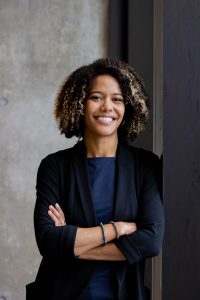 TEP1601 – Equity, diversity and inclusivity (EDI) within engineering contexts
TEP1601 – Equity, diversity and inclusivity (EDI) within engineering contexts
* Summer session starts July 10. Last week to register! Learn more
Students gain a more “whole” view of the profession, reaching beyond technical training, acquiring essential skills increasingly required by industry, and funding organizations.

TEP1601 was a natural fit for Dimpho Radebe (third year engineering education PhD candidate). Her research is focused on examining intersections of engineering, culture, identity and belonging, while touching on professionalization and career paths using critical race theory.
“I felt like I needed some tools and theories and frameworks and ability to speak about experiences in engineering in a way that I didn’t have formal education on.” said Radebe. “This EDI course in an engineering context, really helped give me the language to navigate the analysis I want to do.”
Speaking with Radebe, it was apparent TEP1601 had an impact on her academic experience and could do same for other engineering grad students.
“It was a transformative, exciting, educational experience and a different way of learning than I have found in other traditional classes.”, she said. “This course helps you grapple with difficult questions about the profession, your professional identity and the kind of role you want to play in the world, in a safe space with your peers.”
Radebe also really enjoyed the classroom environment, which involved a high level of student engagement and proactive learning and then teaching of peers. She highlighted – lots of discussion,learning together, opportunities to identify specific topics/concepts, do their own research and bring this back as a tutorial to the class.
Radebe highlighted two key takeaways from the course. One was being able to do an EDI analysis and apply this lens to different contexts and find opportunities for EDI integration, e.g., curriculum proposal, design, or engineering project. The second, was the focus on positionality and our own positionality and how our identities shape how we navigate moving through the world.
Reflecting on the course, she pointed out, “I think that having this kind of training and the understanding and ability to address the social contexts in which our engineering designs fit, can help us become better engineering practitioners and professionals.”
* Please share this with your colleagues and Engineering graduate students.